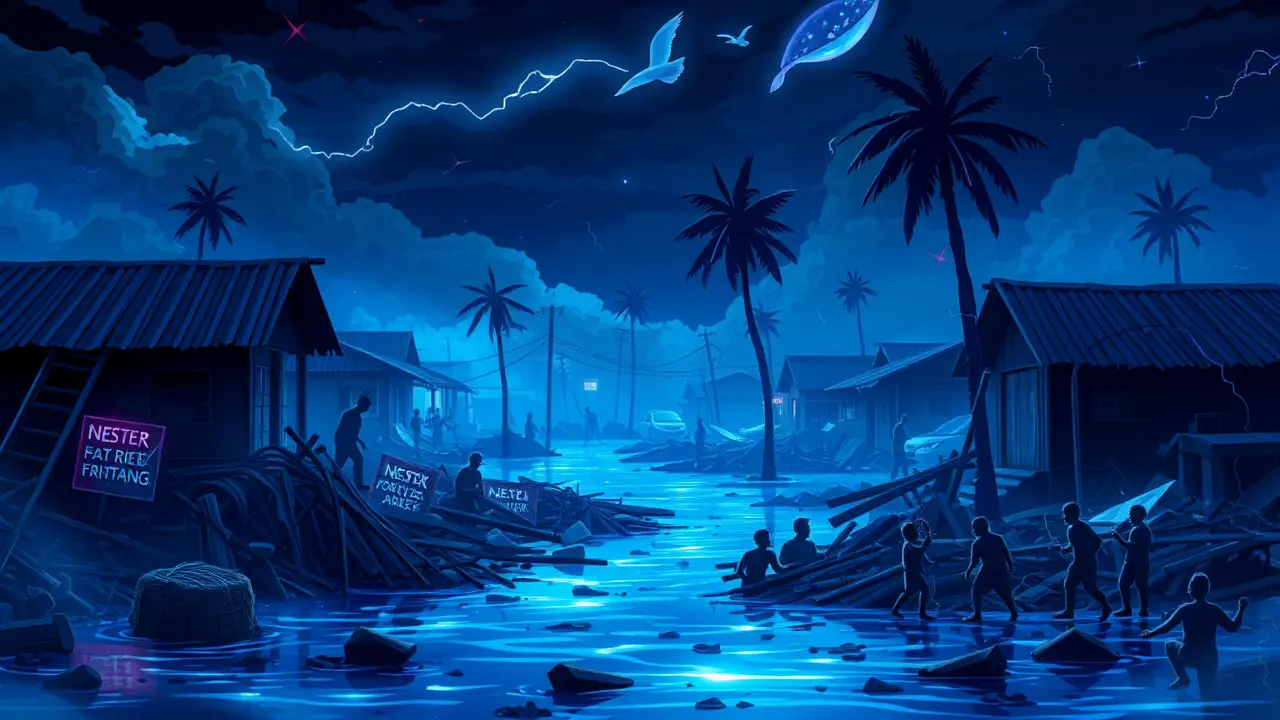
Otheraccidents & disastersSearch and Rescue
Desperation in Jamaica as hurricane survivors scavenge for food.
EM
Emma Wilson
2 days ago7 min read
The raw, desperate struggle for survival in the parish of St. Elizabeth, Jamaica, following the catastrophic hurricane presents a stark failure of the international aid apparatus that promises so much in the immediate aftermath of a disaster.In the town of Black River, a community historically accustomed to weathering storms, the scene is one of profound human crisis; residents, their homes reduced to splinters and their livelihoods washed away, are now forced into the grim reality of scavenging for food and potable water, telling BBC reporters with a chilling uniformity that organized aid has simply not materialized. This isn't merely a story of a natural disaster—it’s a piercing indictment of logistical breakdowns and the hollow echo of global solidarity when it’s needed most.The images emerging are not of orderly distribution lines or temporary shelters stocked with supplies, but of families, including young children and the elderly, sifting through the ruins of their own neighborhoods for anything edible, a visceral testament to a social contract shattered. The emotional landscape here is a volatile mix of simmering anger and a crushing sense of abandonment, with community leaders speaking of a palpable tension rising as the hours turn into days without the arrival of the promised government or UN convoys.This paralysis in Black River echoes tragically familiar patterns seen in other global crises, from the delayed response to the 2010 Haiti earthquake to the bureaucratic quagmires that often hamper relief in remote conflict zones, raising urgent questions about pre-positioned supplies and the actual efficacy of disaster preparedness protocols touted by Caribbean nations perennially in the crosshairs of climate change. Experts in disaster management point to a critical 'golden 72-hour' window for search, rescue, and initial aid delivery, a window that is rapidly closing for the people of St.Elizabeth, exponentially increasing the risks of waterborne diseases like cholera and dysentery, which can claim more lives than the storm itself. The psychological toll is equally devastating, with the initial shock of the hurricane’s fury now giving way to a deep-seated trauma of being utterly forsaken, a mental health crisis that will long outlast the physical rebuilding.The situation on the ground is a tinderbox; the absence of basic sustenance and security inevitably fuels looting and civil unrest, forcing survivors to make impossible choices between morality and the primal need to feed their families. This crisis in Jamaica is a grim microcosm of a larger, more terrifying global trend: as climate change intensifies, producing stronger and more frequent hurricanes, the world’s capacity to respond effectively is being stretched to its breaking point, leaving the most vulnerable communities to fend for themselves. The narrative from Black River is not just one of desperation, but a desperate plea for a reckoning—a demand for accountability from their own government and the international community that vowed to stand with them, a plea that must be answered before hope is entirely extinguished.
#hurricane
#Jamaica
#disaster relief
#food shortage
#survival
#Black River
#emergency
#featured
Stay Informed. Act Smarter.
Get weekly highlights, major headlines, and expert insights — then put your knowledge to work in our live prediction markets.
Comments
It’s quiet here...Start the conversation by leaving the first comment.
© 2025 Outpoll Service LTD. All rights reserved.